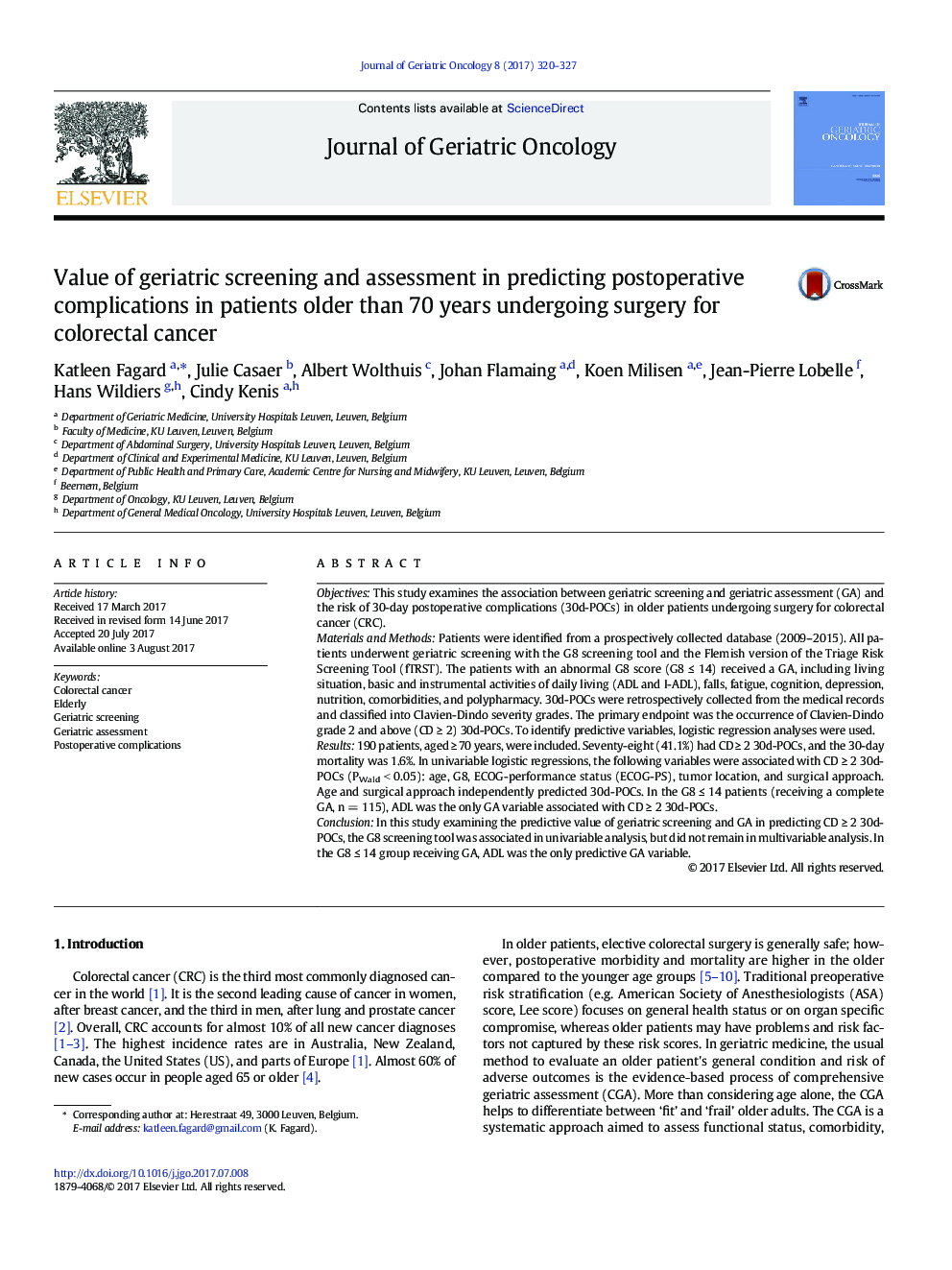| Article ID | Journal | Published Year | Pages | File Type |
|---|---|---|---|---|
| 5502329 | Journal of Geriatric Oncology | 2017 | 8 Pages |
ObjectivesThis study examines the association between geriatric screening and geriatric assessment (GA) and the risk of 30-day postoperative complications (30d-POCs) in older patients undergoing surgery for colorectal cancer (CRC).Materials and MethodsPatients were identified from a prospectively collected database (2009-2015). All patients underwent geriatric screening with the G8 screening tool and the Flemish version of the Triage Risk Screening Tool (fTRST). The patients with an abnormal G8 score (G8 â¤Â 14) received a GA, including living situation, basic and instrumental activities of daily living (ADL and I-ADL), falls, fatigue, cognition, depression, nutrition, comorbidities, and polypharmacy. 30d-POCs were retrospectively collected from the medical records and classified into Clavien-Dindo severity grades. The primary endpoint was the occurrence of Clavien-Dindo grade 2 and above (CD â¥Â 2) 30d-POCs. To identify predictive variables, logistic regression analyses were used.Results190 patients, aged â¥Â 70 years, were included. Seventy-eight (41.1%) had CD â¥Â 2 30d-POCs, and the 30-day mortality was 1.6%. In univariable logistic regressions, the following variables were associated with CD â¥Â 2 30d-POCs (PWald < 0.05): age, G8, ECOG-performance status (ECOG-PS), tumor location, and surgical approach. Age and surgical approach independently predicted 30d-POCs. In the G8 â¤Â 14 patients (receiving a complete GA, n = 115), ADL was the only GA variable associated with CD â¥Â 2 30d-POCs.ConclusionIn this study examining the predictive value of geriatric screening and GA in predicting CD â¥Â 2 30d-POCs, the G8 screening tool was associated in univariable analysis, but did not remain in multivariable analysis. In the G8 â¤Â 14 group receiving GA, ADL was the only predictive GA variable.
